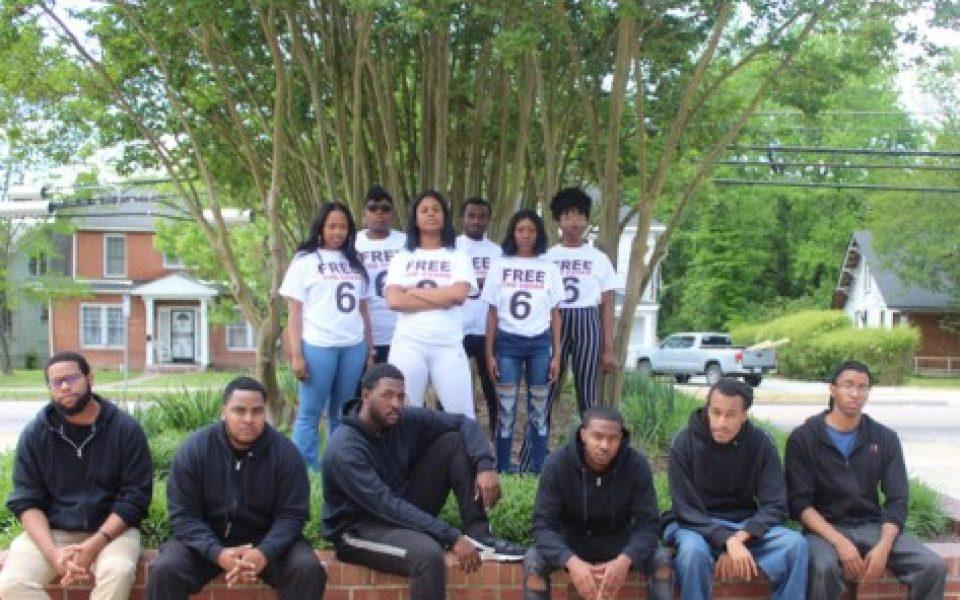Directed by Stephanie “Asabi” Howard, performed by NC Central University, Mountcastle Forum, Milton Rhodes Arts Center
Tickets and showtimes can be found here.
The Jena 6 case preceded the deaths of Trayvon Martin and
Michael Brown, which helped touch off the Movement for Black Lives, by at least
five years. Jena 6, which also inspired a national mobilization for racial
justice, was in some respects the flipside of the same racial superstructure.
While the killers of Martin and Brown — a neighborhood watch leader and a cop
respectively — went free, the six black teenagers at the center of the Jena 6 in
rural Louisiana were charged with attempted murder for their involvement in a
schoolyard fight.
Blood at the Root,
the acclaimed play written by Dominique Morriseau, is a choreo-poem loosely
based on the events that transpired at Jena High School in late 2006 and early
2007. The appearance of nooses in an oak tree next to the school underscored a
history of racial segregation that contextualized the brutal intertwining of
race and punishment in the prosecution of the six black students. But
Morriseau’s play places all of her characters on uncertain footing rather than
reducing the story to a set of activist slogans.
Stephanie “Asabi” Howard, who directs the student cast of Blood at the Root at this year’s
festival, traveled to Jena as a chaperone shortly after joining the faculty at
NC Central University in Durham, where she now chairs the theater and dance
department. Howard said the student actors, who are about 10 years younger than
the Jena 6, were not necessarily familiar with the events that inspired the
play.
“I don’t think they relate to Jena; we’ve watched videos
together,” Howard said. “It’s a very small town and seems quite segregated,
other than when people come together for football games.”
Erik Dilauro, the only white cast member, who portrays Colin
— the victim of the beating — comes from Weldon, in Halifax County.
“He said in Weldon it’s kind of like that — quite
segregated, small, not a lot of mixing,” Howard said.
Howard said she admires the way Morriseau’s plot avoids
finger-pointing.
The friendship between Colin and Raylynn (played by Shani
Roy), who is the sister of one of the African-American football players who
attacks him, is an example of the complexity Morriseau brings to the story.
“She goes to him and says, ‘Can you drop the charges against my brother?’” Howard recounts. “‘We get in fights all the time and then we go on about our business.’ The results of this fight are different; they’re serious and life-changing. There’s a great back and forth with different perspectives and feelings.”
Join the First Amendment Society, a membership that goes directly to funding TCB‘s newsroom.
We believe that reporting can save the world.
The TCB First Amendment Society recognizes the vital role of a free, unfettered press with a bundling of local experiences designed to build community, and unique engagements with our newsroom that will help you understand, and shape, local journalism’s critical role in uplifting the people in our cities.
All revenue goes directly into the newsroom as reporters’ salaries and freelance commissions.


Leave a Reply